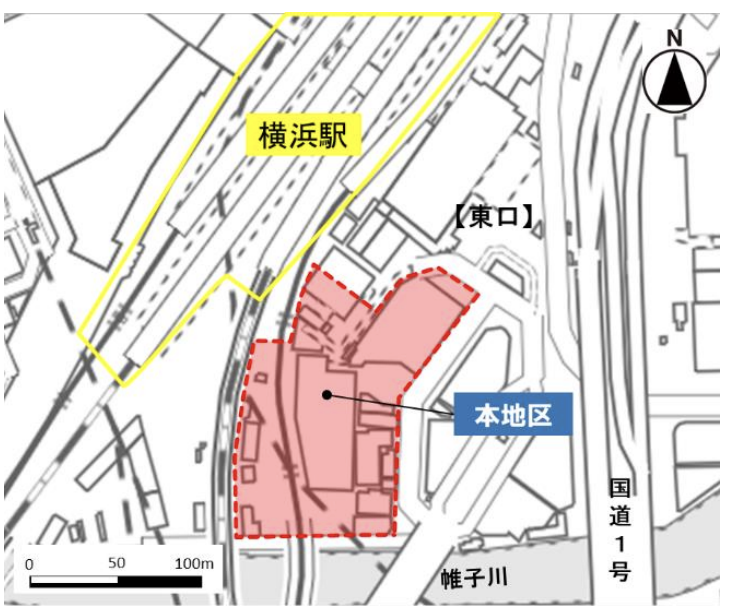Many people search for the term " real estate manager, " but there is actually no certification by this name. To be precise, it refers to a national certification called "rental real estate business manager, " often abbreviated to "rental property manager. Because of the length of the name, it is easily confused and is often incorrectly described as a "real estate manager. This article will provide a detailed explanation of the certification of rental property manager, including an overview, benefits of certification, and situations in which it can be used. While gently correcting misconceptions, we will provide useful information for those who are considering acquiring the certification.
What is a Certified Rental Property Manager - Overview of Qualifications
A certified rental property manager is a rental management professional with expertise, skills, and ethics in the management of rental housing. They play an important role in protecting the interests of both property owners (landlords) and tenants (tenants) and in the proper management of rental properties. For example, we are involved in all aspects of rental management, from tenant recruitment, tenant screening, handling problems after signing a contract, maintaining facilities, and restoring properties to their original condition when tenants move out. They are also entrusted by the owner to manage the property, and they may research the rent market in the surrounding area and propose appropriate rent rates, or provide advice on how to increase the value of the property. As professionals with such a wide range of business knowledge, they are considered important in the industry.
National Qualification and Legal Status: Although the Rental Property Manager is a relatively new qualification, established in 2007, it is now positioned as a national qualification based on the Rental Housing Management Business Law. The license has been changed from a private qualification to an official national qualification since June 15, 2022. Companies engaged in the rental housing management business are required to have at least one qualified "business manager" in each office, and the qualification that serves as a requirement for this is the Certified Rental Property Manager. In other words, a person with this certification holds a legally important position. The national certification has increased the credibility of this qualification, and it is attracting more and more attention in the real estate industry.
Advantages of becoming a Certified Rental Property Manager
There are many advantages to becoming a certified rental property manager. Here are some of the main benefits
-
Improved customer service skills: Through certification, you will acquire comprehensive practical skills because you will learn a wide range of knowledge, including the laws, buildings and equipment, and tax knowledge necessary for rental property management. With a wealth of knowledge, you will be able to solve various problems and handle complaints smoothly in the field, and answer tenants' questions accurately. As a result, you will be better able to build trust with tenants and owners, leading to higher customer satisfaction. Failure to properly respond to requests and complaints may cause tenants to move out, but with the expertise of a rental property manager, problems can be resolved smoothly.
-
Assurance of expertise (proof of high level of expertise): Being a certified rental property manager is proof that you have a high level of expertise and skills in rental housing management. Since this qualification is registered with the Ministry of Land, Infrastructure, Transport and Tourism as a standardized qualification in the industry, it is credible enough to be listed on a business card or title as a professional. Some companies, especially those that provide rental management services, tend to give preference to those who hold certifications, and some even provide certification allowances or make it a requirement for promotions. In other words, having a certification makes it easier to be recognized as a "rental management professional" within the industry and to gain credibility.
-
Career advancement and industry credibility: As mentioned above, this certification is also a requirement to become a legally required business manager, which directly leads to promotion and advancement in the property management company. It is also a great asset if you want to start your own business in the future. To run your own rental housing management business, you must have a business manager, and if you are a certified manager, you can fulfill this requirement yourself. In addition, having other real estate qualifications, such as a real estate transaction license, will broaden the scope of your activities as a person who is familiar with both leasing and sales, and will gain more trust from clients.
-
Increased trust from clients and business partners: Knowledge of rental management will facilitate communication with owners and tenants. Property managers (rental managers) work with a variety of people, including owners, prospective tenants, and repair companies. Having the knowledge and ethics backed by qualifications will make it easier to earn the reputation of "I can trust this person to manage my property" or "I can trust this person in charge. Improved credibility both within and outside of the industry is a major benefit to your long-term career development.
Specific situations in which a certified rental property manager can be used
Once certified, you can utilize your knowledge and skills as a property manager in a variety of practical situations. Below are some specific situations in which you can utilize your certification.
-
General rental property management: The management of rental properties involves a wide range of tasks, from recruiting new tenants to contracting, handling complaints during tenancy, facility maintenance, and settling accounts and restoring properties to their original condition when tenants move out. The knowledge of a certified rental property manager can be of great help in properly and efficiently carrying out these series of rental property management tasks. For example, it is only with specialized knowledge that one can make decisions such as taking appropriate legal measures in the event of rent arrears or ensuring that legal inspections of building facilities are carried out without omission. The contractual and legal knowledge gained from your certification will enable you to manage risks thoroughly and prevent problems before they occur.
-
Tenant Relations and Support: In rental management, tenant relations is one of the most familiar customer relations tasks. With the knowledge gained from the certification, you will be able to provide accurate answers and advice when tenants have questions or concerns. For example, "What are the rules regarding the settlement of security deposits when tenants move out? the tenant can rest assured that the explanation will be based on legal grounds. In addition, when there is a complaint about noise or defective facilities, we can promptly resolve the issue with a calm and professional response. This improvement in responsiveness will increase tenant satisfaction, which in turn will have the positive effect of increasing long-term occupancy and referrals.
-
Explanations and suggestions to owners (landlords): Owners of rental properties can also benefit from the knowledge of a rental property manager. When you are entrusted with the management of a property, you will explain important matters to the owner, confirm the details of the contract, and propose a management plan. A certified property manager is well versed in the legal system and market trends related to rental management, and can provide well-reasoned explanations to owners. For example, they can provide expert advice in situations such as "setting an appropriate rent based on the market price in the neighborhood," "proposing remodeling to prevent vacancies," and "explaining the latest changes in laws related to lease contracts. This is more persuasive than a non-qualified staff member and leads to gaining the trust of owners. As a result, you may receive more requests to continue management contracts or to expand the number of properties.
-
Role within the company and career development: A certified rental property manager is a valuable asset to a real estate company with a rental management department. They may be assigned a responsible position within the company as a business manager as required by law, or they may serve as a mentor to younger employees. The presence of a certified manager in the company improves the company's overall awareness of compliance and contributes to the company's credibility with the outside world. This will be a great advantage when you start your own business in the future, as you will be able to run your own rental management business as the business manager.
Conclusion: For those considering certification
The Certified Rental Property Manager, sometimes incorrectly referred to as a "property manager," is an attractive certification that allows you to play an active role as a rental management professional. Knowing the official name may have helped you gain a better understanding of the industry, and it may have also made it easier to envision a specific career after obtaining the certification. This certification has many advantages, such as improving your ability to deal with customers, proving your expertise, and gaining trust within the industry, and will be very useful for those who want to work in the real estate industry for a long time and become a specialist in rental management. Of course, it takes effort to obtain the certification, but beyond that, there are many fields in which you can grow as a professional. We encourage you to give this a positive consideration.

Daisuke Inazawa
Representative Director of INA&Associates Inc. Based in Osaka, Tokyo, and Kanagawa, he is engaged in real estate sales, leasing, and management. He provides services based on his extensive experience in the real estate industry. Based on the philosophy that “human resources are a company's most important asset,” he places great importance on human resource development. He continues to take on the challenge of creating sustainable corporate value.

.png)













